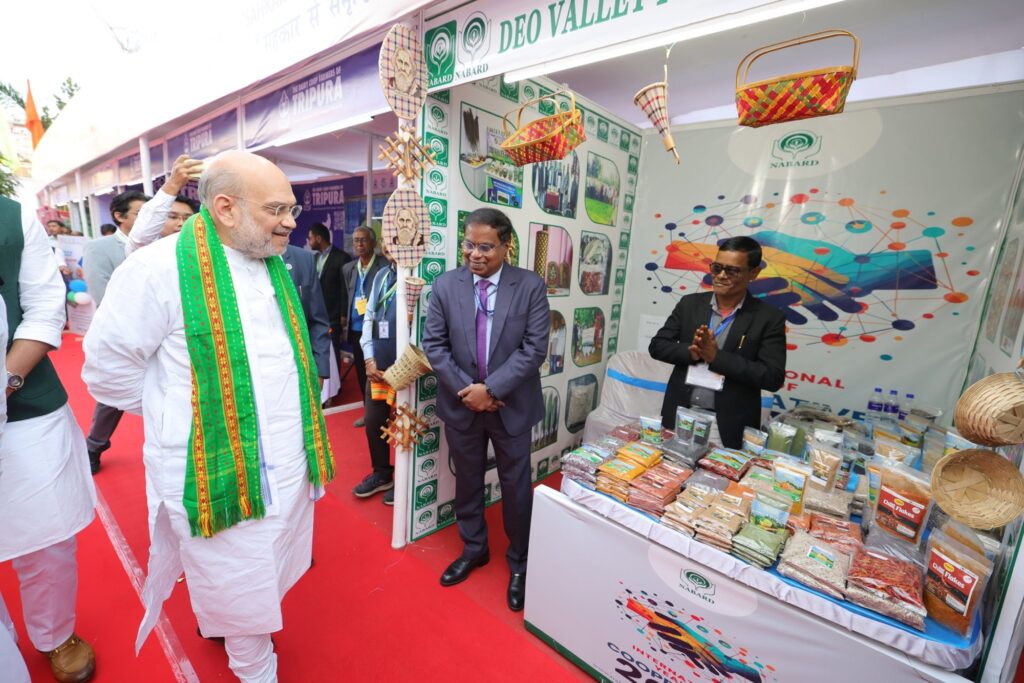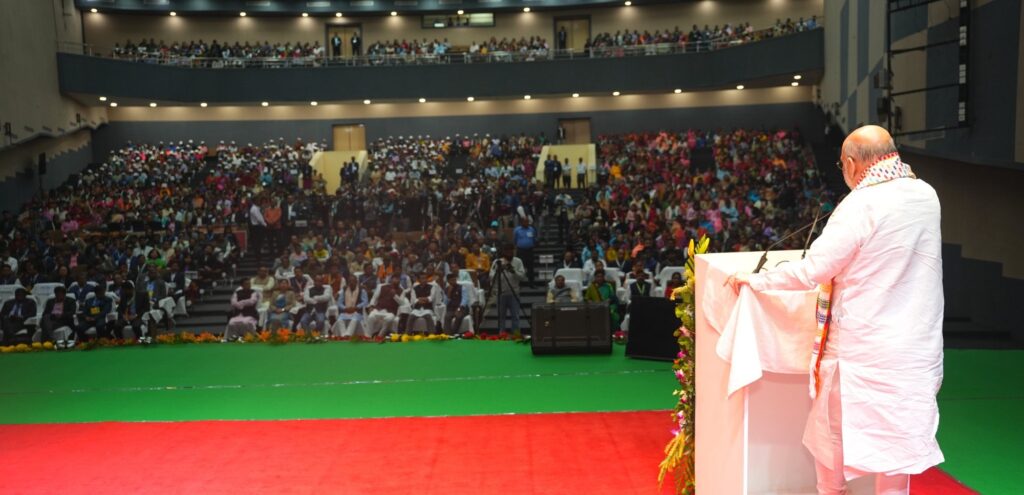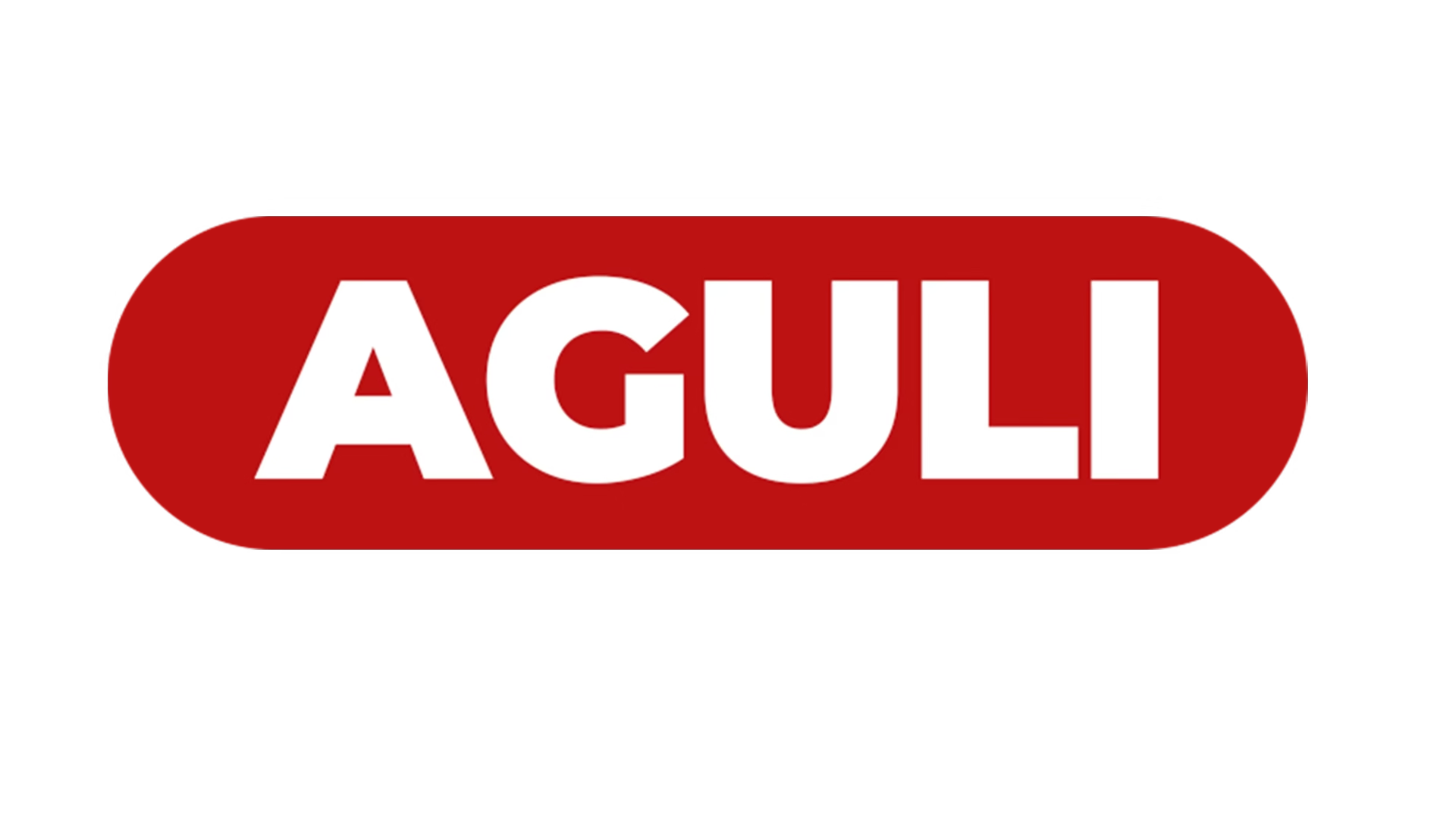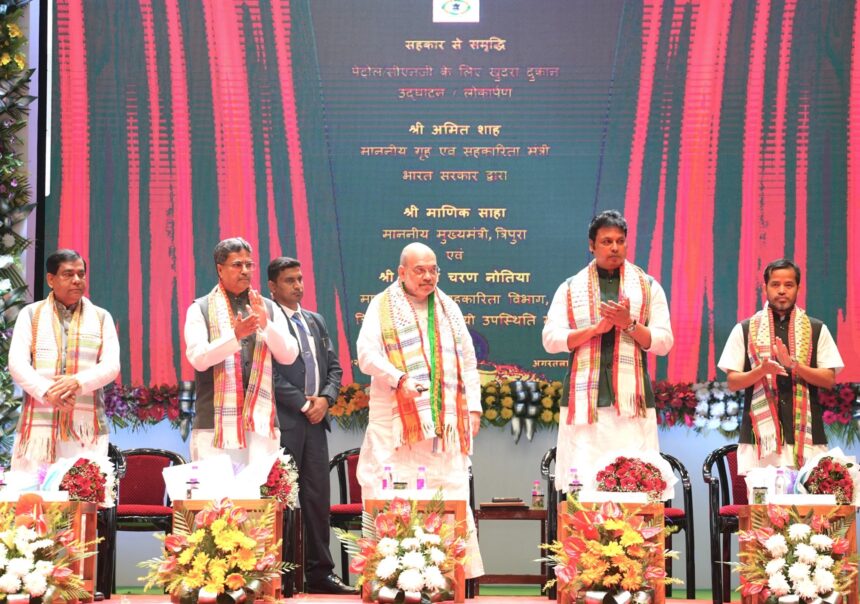Sahakar Se Samriddhi: A New Era in Cooperative Development in Tripura
Following the change in government, Tripura has witnessed a new direction in the cooperative sector. Speaking at the “Sahakar Se Samriddhi” event during the 2024 Cooperative Conference at Rabindra Centenary Bhavan, Union Home and Cooperative Minister Amit Shah commended the state’s development under the current government. Highlighting key achievements, he noted that Tripura’s per capita annual income has risen from ₹98,000 to over ₹1,77,000.

He praised the state government for expanding piped drinking water supply from less than 3% of households in 2017 to over 80% today. Similarly, more than 80% of the population now benefits from health insurance schemes of up to ₹5 lakh, and an equal percentage has access to gas connections. These strides mark significant progress compared to the previous administration, which he criticized for prioritizing communist cadres over citizens.
Amit Shah emphasized Tripura’s strength in organic farming, with over 70% of farmers engaged in this practice. However, he pointed out the lack of certification for these farmers and suggested linking them with national organic cooperative societies to secure certification. This could increase the value of their produce by at least 30% within two to three years. He encouraged farmers to diversify into fish farming and discussed the establishment of three cooperative societies aimed at:

1. Producing high-quality seeds.
2. Marketing organic products.
3. Streamlining the distribution of agricultural produce.
The Union Minister announced plans to construct storage facilities with a capacity of 2,000 metric tons, ensuring all tehsils in the state have access to storage for agricultural produce. Tripura currently has 3,183 cooperative societies involved in various sectors such as dairy, animal husbandry, and multi-purpose activities.
Chief Minister Prof. (Dr.) Manik Saha emphasized the state’s focus on leveraging cooperatives to boost its Gross State Domestic Product (GSDP) and per capita income. Currently, Tripura’s GSDP growth rate stands at 8.9%, with the per capita income at ₹1,77,773, marking a significant increase compared to 2023.
The state government aims to establish a milk and fish cooperative in every panchayat and village council area and plans to form 741 multi-purpose PACS and 219 milk and fish cooperatives in the next five years. Efforts are also underway to computerize all PACS and integrate them into the national database, with e-services being enhanced through Common Service Centers (CSCs). PACS have also been approved for setting up petrol pumps, and discussions are ongoing to provide tax exemptions for cooperatives.
Reflecting on his visit to Dhalai district, Amit Shah highlighted the rehabilitation of the Bru-Reang tribe, with over 38,000 families now living in improved conditions. Under the BJP-led government, these families have received permanent housing, roads, drinking water, gas connections, education, and healthcare facilities.
During the event, the Union Minister inaugurated several projects, including:
• A consumer store by Kotha Blue Multipurpose Cooperative Society in Dhalai.
• A fertilizer sales center in Daldali LAMPS, Mohanpur subdivision.
• A smart training center by the Tripura State Cooperative Union in Arundhutinagar.
• A new petrol pump by the Tripura State Cooperative Consumers Federation in Udaipur.
Additionally, 50 primary cooperative societies received micro ATMs as part of the initiative to digitize and empower cooperatives.
The Cooperative Conference 2024 underscored the pivotal role of cooperatives in driving Tripura’s socio-economic progress. With continued collaboration between the state and central governments, Tripura aims to achieve sustainable growth and set an example for cooperative-driven development across India.










